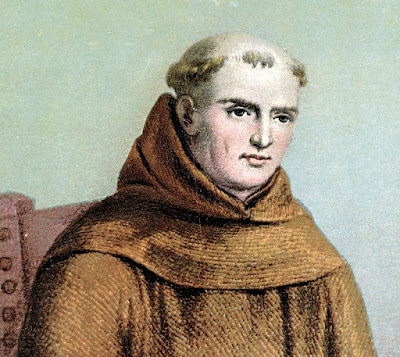St. Henry had great power in this world, and he used that power for the good of his people and for the spread of the Catholic Faith. Henry, surnamed the Pious, Duke of Bavaria, became successively King of Germany and Emperor of the Romans; but he realized that his temporal power was a gift from God, and he strove to gain an immortal crown, by putting himself always at the service of his eternal King, Jesus Christ.
As emperor, he devoted himself earnestly to spreading the Catholic faith, and he rebuilt the churches which had been destroyed by Muslim invaders, endowing them generously both with money and lands. He built monasteries and was himself a Benedictine Oblate. When Pope Benedict VIII, who had crowned him emperor, was in danger from enemies of the Church, St. Henry received him and ultimately restored him to the Holy See.
It was Henry’s practice never to undertake anything without first praying. There were times that he saw the angel of the Lord, or the holy martyrs, his patrons, fighting for him at the head of his army. Aided in this way by God’s divine protection, he conquered barbarous nations as much by prayer as by weapons.
He was married to a devoted wife, also a saint, St. Cunigund, although they remained childless. In fact, together they are patron saints of childless couples.
When Henry’s life's work was accomplished, he was called by God in 1024. His body was buried in the Church of the Blessed Apostles Peter and Paul at Bamberg and immediately there were many miracles reported by those who prayed at his tomb. St. Henry was a man who had managed to lead his earthly kingdom with such responsibility that he never lost sight of the Kingdom of God.
We live in this world, but we are not to be of this world. In fact, as St. Henry knew, we are called to sanctify this world.
O God, whose abundant grace prepared Saint Henry to be raised by thee in a wonderful way from the cares of earthly rule to heavenly realms: grant, we pray, through his intercession; that amid the uncertainties of this world, we may hasten towards thee in perfect purity of heart; through Jesus Christ thy Son our Lord, who liveth and reigneth with thee, in the unity of the Holy Spirit, ever one God, world without end. Amen.

















